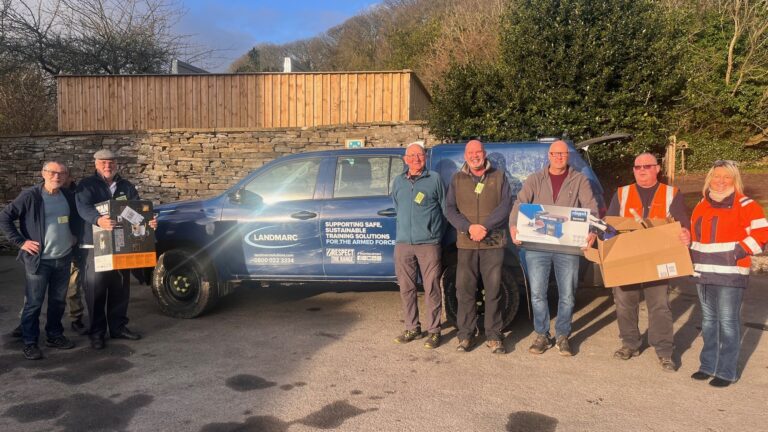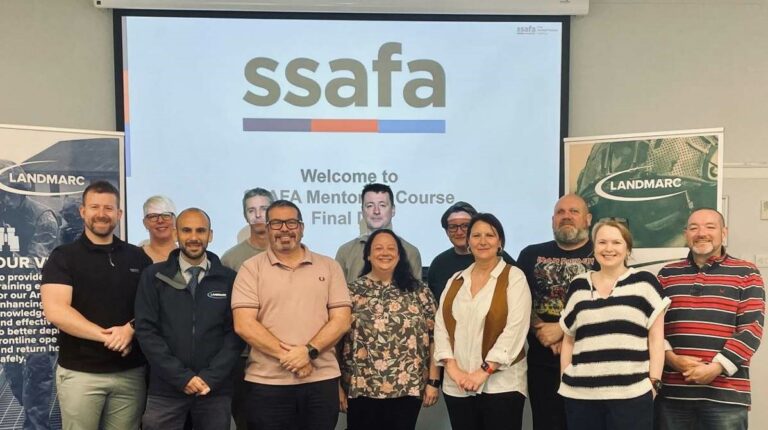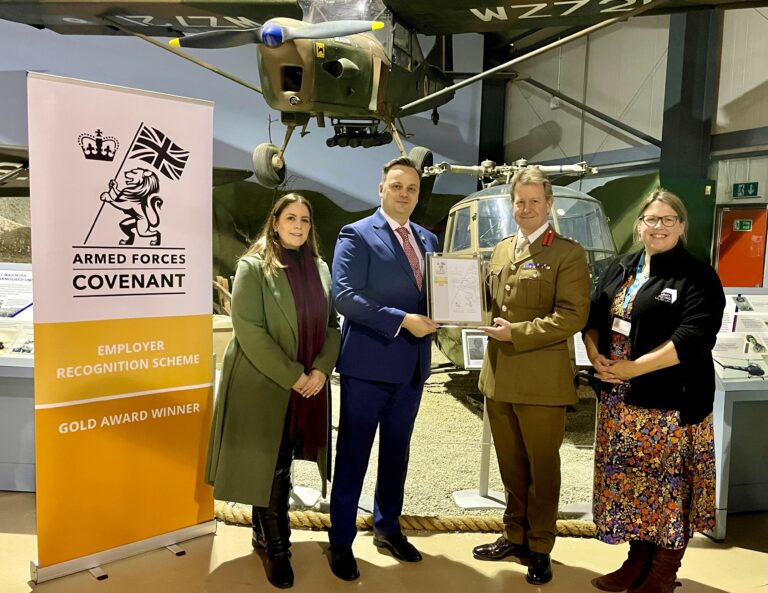Landmarc Support Services has reached the UK Social Enterprise Awards finals. The national competition, now in its 15th year, recognises the work and achievements of Britain’s most inspiring and successful social enterprises.
Landmarc, which works with the Defence Infrastructure Organisation (DIO) to manage the Ministry of Defence training estate, is the third biggest land manager in the country. The organisation has been shortlisted as a finalist in the ‘Buy Social’ Market Builder category.
The company was initially created in 2002 to provide support services to the DIO, but is now establishing itself as a provider of integrated training and sustainable infrastructure support solutions on a global scale. Services include consultancy; design, management and operation of training areas and ranges; explosives safety; built and rural estate management, including environmental and conservation support; information management and administration services; project management and commercial property management.
Together with its strategic partners Landmarc provides employment for over 2000 staff, delivering services to DIO Ops Training and providing a safe and sustainable place for the armed forces to train. The contract encompasses 120 sites in Wales, England and Scotland, covering more than 200,000 hectares and supporting some 48,000 hectares of Sites of Special Scientific Interest.
Shortlisted for its work in adapting its supply chain to create increased social value, 51% of Landmarc’s supply chain expenditure is with SMEs and social enterprises, representing 60-70% of the organisations it contracts. Landmarc has also committed to increasing the innovation and sustainability of its supply chain by launching a Rural Enterprise Hub – a free-of-charge drop-in office for rural entrepreneurs and its rural innovation scheme, Landmarc100.
Steve Utley, Project Director for Landmarc Support Services said: “In the 12 months since our ‘shared value’ journey began, we have already made a significant difference not only economically, socially and environmentally but also in the way we are embedding change in our core business.
“Our ambition for the future is to more formally understand the impact we have on the rural communities in which we operate: both positive and negative. Only with this understanding can we continue to move forward. To help us achieve this, we are continuing our work to develop and implement the appropriate measurement tools, targets and milestones for social value reporting.
“We hope to position Landmarc as a pioneering social value business not only in its own industry, but in the UK business sector as a whole.”
The UK Social Enterprise Awards are organised by Social Enterprise UK, the national body for social enterprises, businesses that serve people and communities. There are almost 70,000 social enterprises in the UK.
Peter Holbrook, Chief Executive of Social Enterprise UK, said: “We received more than 250 entries this year and the quality of the finalists is outstanding – the judges are going to have a tough job choosing a winner. The awards are a celebration of Britain’s very best social enterprises, businesses that are making a positive difference here in the UK and abroad. Social enterprises are businesses that put people and planet first – when they profit, society profits.”
The UK finals will be held in London on 27 November, and will be hosted by comedian and television presenter Sue Perkins of The Great British Bake Off. The Social Enterprise Awards are sponsored by The Independent on Sunday, The Royal Bank of Scotland Group, BP, Landmarc, PwC, Nuffield Health, InterContinental Hotels Group and Santander.
Social enterprise facts and figures (from The People’s Business report, published by Social Enterprise UK, July 2013)
• There are 70,000 social enterprises in the UK, contributing 24 billion to the UK economy and employing 1 million people.
•Social enterprises are much more likely to be led by women than mainstream businesses – 38% of social enterprises have a female leader, compared with 19% of small to medium sized enterprises (SMEs) and 3% of FTSE 100 companies.
•Social enterprises are very heavily concentrated in the UK’s most deprived communities – 38% of all social enterprises work in the most deprived 20% of communities in the UK, compared to 12% of traditional SMEs.




